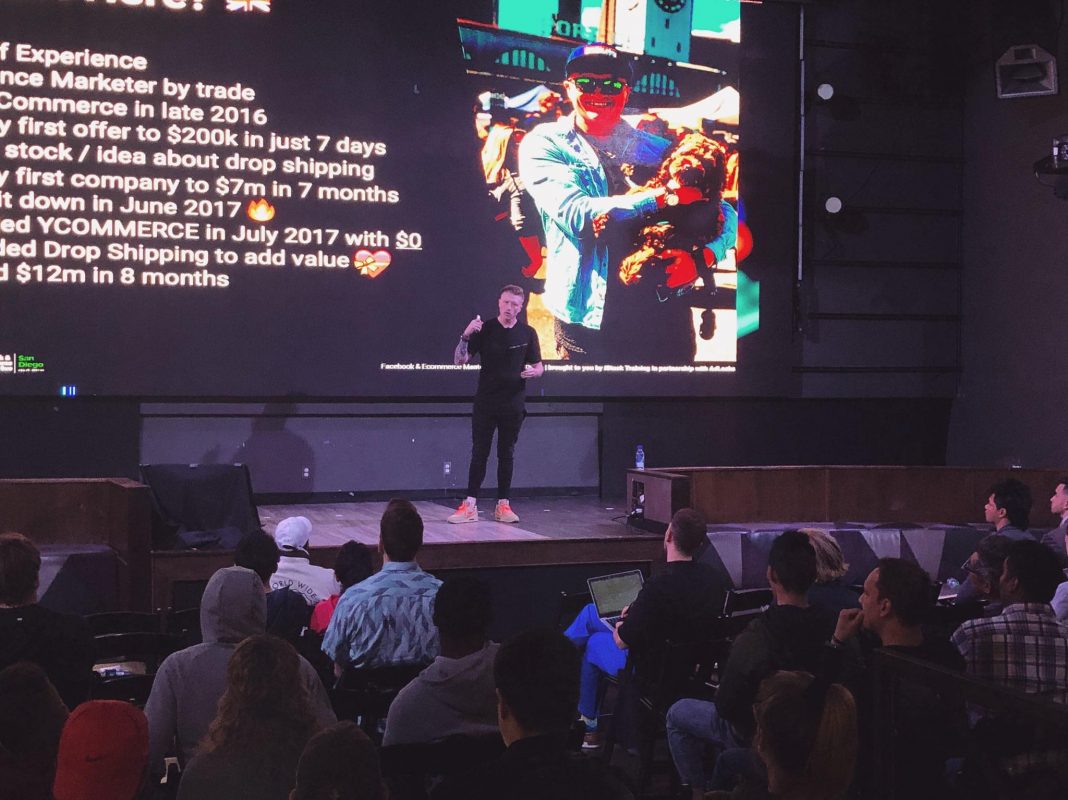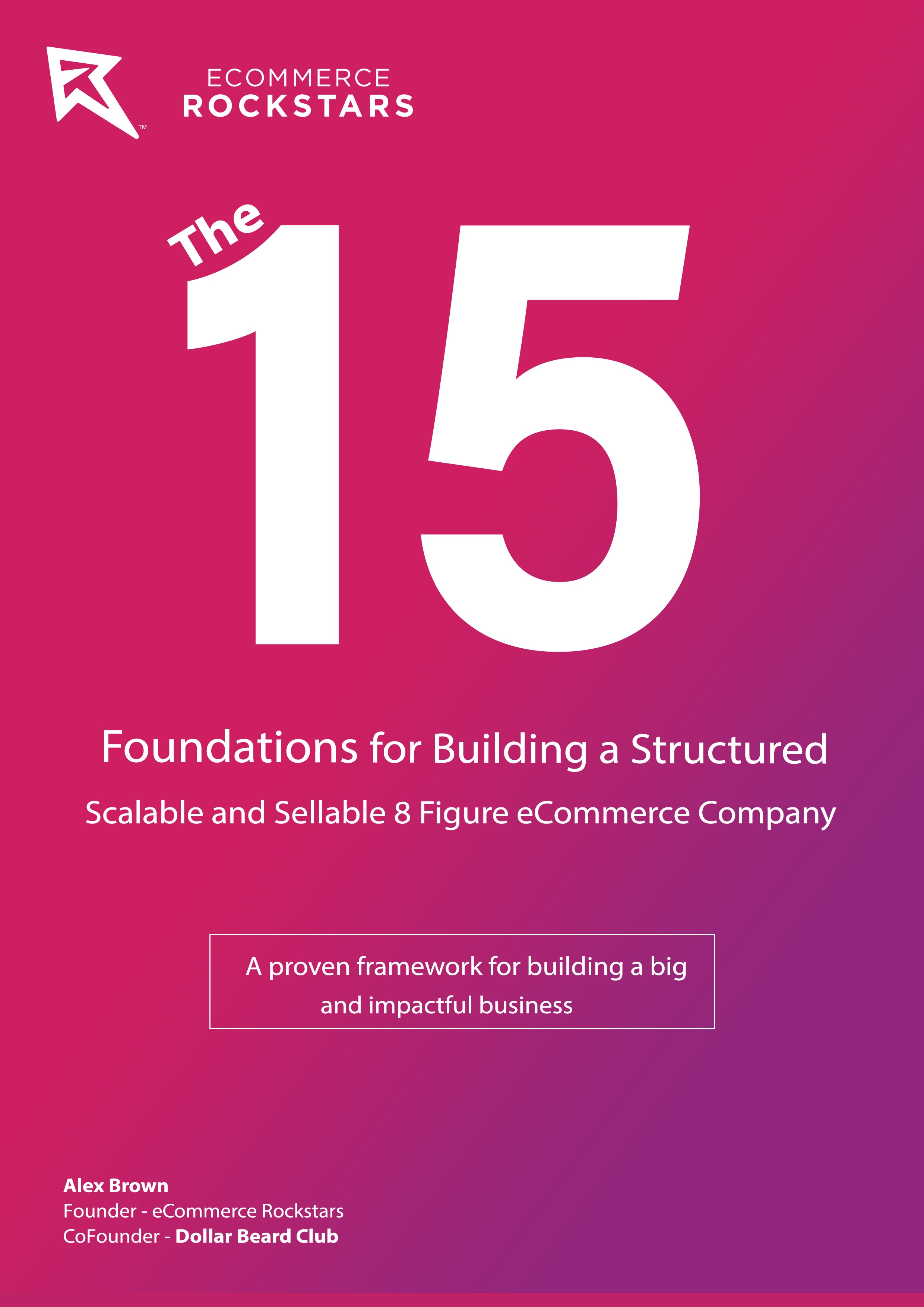Sam Venning is the CoFounder of Y-Commerce, where he builds and runs multiple 7-figure ecommerce businesses in the “branded drop-shipping space”. He and his team have found a model where they can mitigate the difficulties consumers experience in unknowingly buying drop-shipped products while transitioning towards building real brands, with owned manufacturing processes, doing serious numbers.
Sam started off in ecommerce at a young age while working a full-time job, and it quickly became his main hobby and even obsession. He became very skilled at running ads and selling a ton of product, but then quickly realized that if he didn’t have a plan to fulfill those orders in a timely manner that he wasn’t actually running a real business. He then moved into working with Alibaba, Ali-Express and direct drop shipping for established manufacturers.
He and his business partners were able to scale their sales significantly to the point of 7 figure product funnels, however, this level of success proved to be a bit much to handle for a group of young entrepreneurs. The cash flow from the business was pretty tempting, and at the time they didn’t prioritize re-investing in the business.
Because they weren’t building any sort of brand or platform for sustained business, they had a bad month and literally lost their entire business. This left him in the position of having just made a ton of money, spent it all, and now needing to start fresh with just a credit card but with some incredible experience in running ads and building funnels.
Lessons learned the hard way are ones not soon forgotten. Sam and a partner started from scratch with the idea in mind that once finding a successful product test, they would start reinvesting that money into building real brands and a business model that could sustain them for the long term. They currently work with a warehousing partner in China and manufacturers who can produce branded products, with branded packaging, and deliver it on expedited timelines comparable to domestic brands.
Sam’s advice is to use drop-shipping as a knowledge base, and a way of accelerating your cash flow to reinvest it into the business for the growth of the business and the building of the brand. Once you prove demand for a product with drop-shipping then you can use that as validation for placing larger orders to be manufactured under your own brand. Now, they test fewer products but invest more in the testing with videos and better-designed funnels so that they can bring focus and deeper validation, and spend less time running around.
Many times drop shippers will get lazy or scared really quickly when they don’t see an ad working and then move on. Sam’s team has added a layer of patience to the testing phase because many times a product might look like its performing well in the short term, but might actually be a huge winner when you take the time to adjust the funnels and ads more.
The team starts off with pretty aggressive direct response marketing and then starts to reinvest that cash into building a legacy for the brand with influencers and more robust content behind them.
Facebook has been flooded with advertisers selling products that are either absolute junk, or the customer service by the companies are terrible. For this reason, the standards that both Facebook and customers have are much higher, so there is a strong need to have great customer service, delivery timelines, and branded content. Additionally, when people buy products from trusted brands that come from overseas, it’s not as big of a deal as when something arrives from a brand they’ve never heard about, often causing an immediate loss of trust in the brand.
A massive benefit in reinvesting into the customer experience (great customer service, great delivery timelines, etc) is that you then benefit from repeat customers. This is one of the very definitions of whether you have a brand or not: are people buying again, or are they recommending it to their customers. This is really the only way to cut through the rising acquisition costs across the board and to begin to profit at a much greater rate with your ecommerce brand.
Sam leverages influencers to drive sales, built up a ton of usable content in the bank and to build trust with customers for his brand. He recommends starting small with the low hanging fruit and then moving your way up the chain to larger and more expensive influencers. This strategy also conserves cash within the business for operational costs (like inventory) and mitigates the risk involved in investing in a longer-term play with bigger influencers.
Having long term relationships in place with influencers that are a really great fit for your product is extremely important as you migrate up the chain of influencer credibility. If it just looks like an inauthentic sponsored post, it does very little for your brand. If the post is in alignment with the influencer’s brand, and they are posting multiple times about it, it then shows the customer that the influencer has a relationship with the brand and that they might want to as well.
Because Sam learned some lessons in a very hard way when his cash-generating machine went bankrupt, he’s got some great words of advice for those of you who are currently making bank with dropshipping but not playing the long game.
Firstly, he advises being patient. Business is a marathon and not a sprint, and you’re going to have to go through mistakes and hard times to get to the good ones. On top of that, if you are unable to distance yourself from the money your investing and understand that you’re going to have to invest your own cash into your business, you will be unwilling to even take the really great risks that will allow you to pave the way to long term success.
There are a lot of costs that entrepreneurs in the early stages of success also do not foresee, taxes being one of them. Many of you have already been hit with large tax bills due to poor accounting practices and a lack of finance understanding (I know I have). The costs you have as a business at an early stage are completely different than the costs at a later stage and at a much larger scale, so make sure you aren’t taking too much money out of your business to pad your lifestyle.
Overstretching yourself is far too common in branded drop-shipping as well. Rather than trying to launch 20 products a day and collecting limited data, launch 10 per month and really dive deep into the long term opportunities within, and then analyze that data to spot future trends with other related products. Marketing is a lot about testing and building a deep understanding of the market to spot opportunities. Most people tend to only look at ROAS, but the data tells so many deeper stories when you look at it from different angles.
Speaking with an accountant before the end of the next financial year is far more advantageous than doing it after the year is done. Not only are you ahead on your accounting and taxes, but there are massive opportunities for your finance professionals to advise you to move your money into specific investments or strategies that can allow you to keep as much as 20% more of your profit.
Both Sam and I are big proponents of the need to understand how everything works in your business at a high level so that you know how to hire the right people to do it. If it isn’t critical to the big picture of your business, you should not be doing it day to day. That said, its important you know how to put the right hats on the right people.
One of Sam’s biggest pieces of advice for anyone looking to enjoy their life while building a long term successful brand is really just to keep things as simple as possible. We are all guilty of over complicating things, and getting in our own way. When you take a step back and just see things as they are without trying to add so many layers of complexity, big things start to move in big ways. Your patience and commitment pay off, this is a marathon and not a sprint!
Video Highlights
01:00 – Sam’s origins in eCommerce
06:06 – Going broke after getting rich
07:08 – Use Drop-shipping as a knowledge base
10:00 – From an aggressive direct response to brand-building strategy
12:15 – Moving towards a much better customer experience
16:47 – Working with micro and macro influencers for sales and brand building
18:00 – USING influencers for long term brand building
22:28 – Advice for those who are crushing it in dropshipping on how not to lose it all
23:10 – Keep your cash in your business
26:15 – Have patience with your advertising
27:57 – Outsourcing but knowing how to do things right yourself


